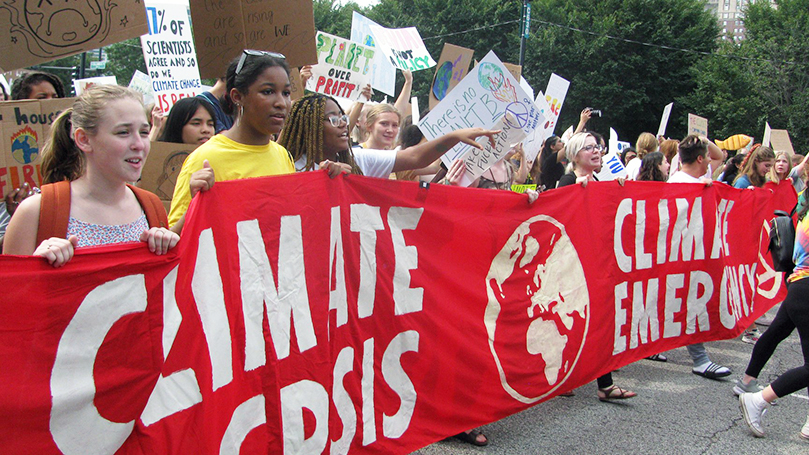
I support the Green New Deal. It is a bold proposal to protect the environment and address the problems of environmental justice and environmental racism. As Rep. Ocasio-Cortez stated when she introduced the resolution in the House, the Green New Deal is “really about providing justice for communities and just transitions for communities. So, really the heart of the Green New Deal is about social justice.” There are hopeful signs that the movement to address climate change is gaining strength, especially among the young and among black and brown youth in particular.
However, as an environmental professional, I share the anxiety of many climate scientists that we are running out of time. I desperately hope that I am wrong.
Efforts by many countries to reach an agreement to reduce greenhouse gases have failed so far. But no one is willing to confront the root cause of this: the vast quality-of-life gap between countries like India and the more developed countries. This gap has historical roots in the colonialist, imperialist, and neo-colonialist plunder of the colonies, leading to uneven development around the world. In turn, unequal development results in uneven environmental degradation, taking the form of environmental racism and climate injustice. Further, working-class and minority communities face the unequal burden of adapting to the effects of extreme weather events, rising seas, and drought.
The uneven carbon footprint, an indicator of the use of resources, is a marker of unequal development. It is not surprising that the carbon footprint of an individual in the developed world is 20 times that of a person from the underdeveloped world. In plain language, this means that someone consumes 20 times more than someone else! Marx’s “from each according to his abilities, to each according to his [her] needs”—not wants—takes on greater significance in these times of climate crisis.
These realities—the quality-of-life gap and the grossly imbalanced carbon footprints of different countries—are ignored when the Western powers blame India and China for not doing enough to reduce carbon emissions. It’s simply unfair.
To address the climate crisis, we need to strike a balance between fairness in consumption and sustainability of nature. This requires social control over production to make it more rational. The global working class has created the forces of production that can meet the rational needs of the world’s population. These “productive forces,” according to Marx, “create also the material conditions for a solution of this antagonism.”[i]
We must expand the concept behind the Green New Deal to address the global crisis. But a collective approach with agreement on the matter of fairness is crucial to getting us out of the trap we are in now. The working class, being at the center of production of use value, can and must lead in creating a fairer world and a sustainable environment.
[i] Karl Marx, preface to A Contribution to the Critique of Political Economy (1859).
Photo: John Bachtell


 Join Now
Join Now